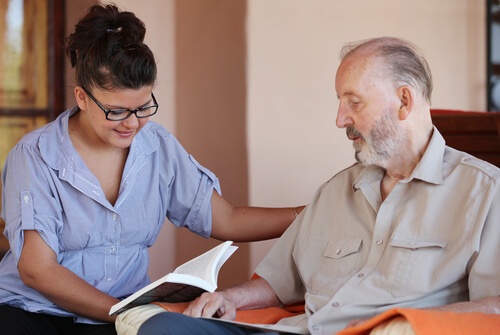
If you know a disabled adult, you are aware of the challenges that self-care can present. Disabled adults home care services offer many benefits for both adults with disabilities and their loved ones:
Benefit #1: Disabled Adults Home Care Offers Support That Facilities May Not Be Able To
An interview on NPR highlights a common issue disabled adults’ face: lack of adequate support in adult care facilities. Adult care facilities, like assisted living or nursing homes, are designed to meet medical needs while offering housing and food for residents.
For those who need constant attention, facility care may be insufficient. Home care offers support that is more personalized than what most facilities provide. Adults who are entirely dependent because of their disabilities also find home caregivers, who offer constant attention, provide better assistance.
Benefit #2: Home Care Assistance Supports Quality of Life for Family Members
The Home Care Association of America believes that home care is beneficial for disabled adults as well as their families, explaining that “caregivers serve as another set of ‘eyes and ears’ in the home.” For the family members of disabled adults, the extra help of a professional caregiver enables the family to live, work, and enjoy life together with less prospect of burnout. Further, many family members who provide care must also work outside the home to financially support disabled loved ones. Professional aides allow that freedom.
Benefit #3: Home Care Fills in With Services That Health Care Does Not Provide

Health care services are geared to providing help specific to medical problems and solutions, like medicines, medical devices, or therapies. Home care fills in with assistance needed for basic actions and activities like:
- Dressing
- Grooming
- Feeding
- Personal Hygiene
- Toileting
- Incontinence Care
- Cooking
- Homemaking
- Mobility
- Transportation
- Memory help
Although not medical in nature, these basic necessities might be impossible for disabled adults to perform on their own- even if they can safely live alone or work a regular job.
Benefit #4: Home Care Enables Some Disabled Adults to Live Alone
About 17 percent of disabled adults live independently and can do so while needing only minimal assistance to live alone. A paraplegic, for example, may be able to work in an office, hang out with friends, and live comfortably at home. They may just need a home caregiver to be their “hands” and “feet” for activities like changing, dressing, and getting meals. Home care is beneficial and invaluable for many such adults with disabilities.
Benefit #5: Home Care is Flexible to Meet Individual Needs
Disability in adulthood presents diverse problems. Every family and individual affected by disability have unique needs that require one of a kind solutions. Many find that home care is advantageous for both adults with disabilities and their loved ones because of the flexibility and ability for customization of the services needed.
Learn more about home care for disabled adults. These services may become invaluable to you and your loved ones: Download our FREE Guide to Home Care.
{{cta(‘6a691ae8-409b-4b09-a1d5-2864ffe1c1b5’)}}






